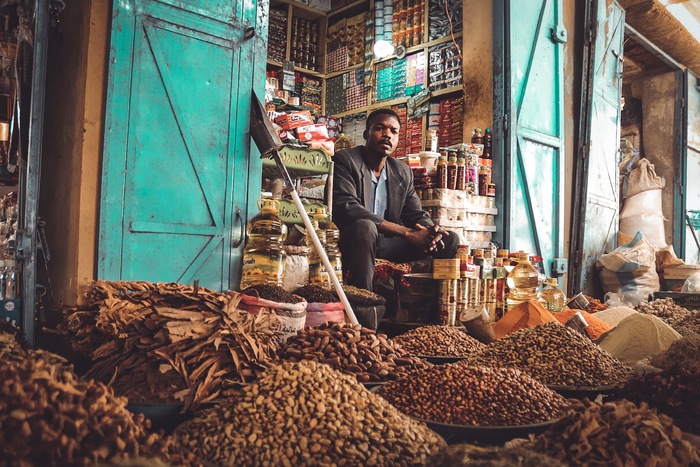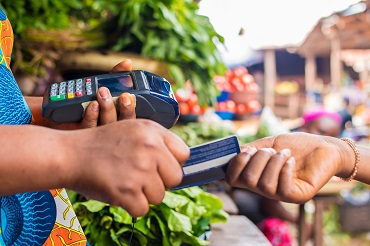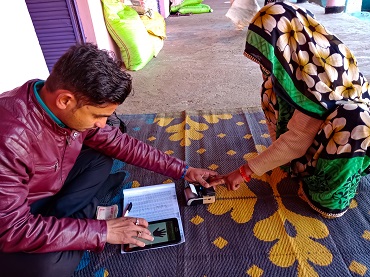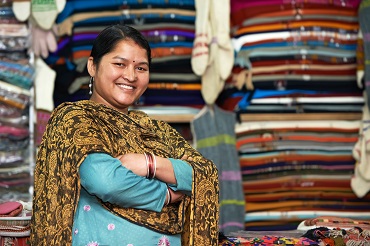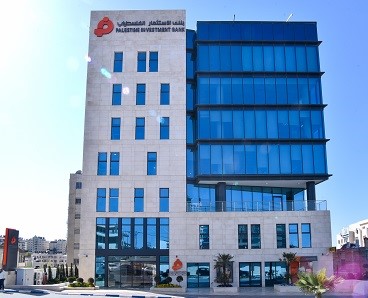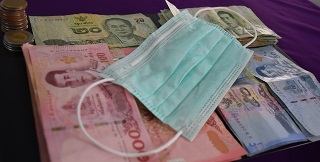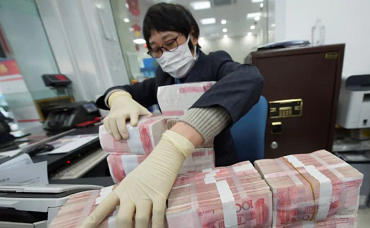Blog
The perfect storm to accelerate the digital revolution for Agri SMEs
Jul 10, 2020
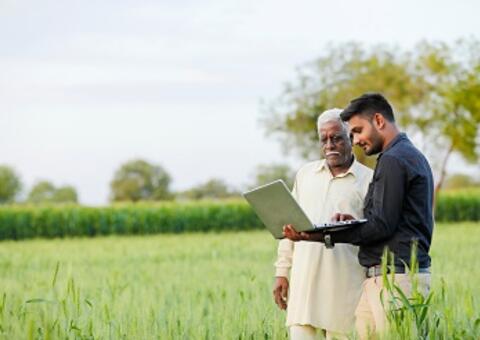
A virtual roundtable summary.
With the outbreak of the COVID-19 crisis, economies around the world have been shaken by supply chain disruptions in all sectors, and the agricultural sector is no exception. The effects of COVID-19 have been diverse and largely dependent on the extremity of a country’s lockdown as well as government interventions. As part of a weekly webinar series on COVID-19 mitigation efforts, the SME Finance Forum hosted a virtual roundtable to discuss SMEs in the agricultural sector and how they are weathering COVID-19. The panel was hosted by Jessica Elaine Alfaro (IFC) and moderated by Panos Varangis (IFC, World Bank) with Mariem Dkhil (Crédit Agricole du Maroc), Onur Terzi (TEB), David Gerbrands (Rabo Partnerships Advisory Services), Benjamin Njenga (Apollo Agriculture) and Isaac Masusu (NMB Bank PLC) sharing their knowledge and experiences on how the COVID-19 crisis has affected agri-SMEs in different regions of the world.
In Morocco, agricultural activities account for about 14 % of the country’s GDP, (source Ministry of Agriculture and Fisheries) and over the past months, agri-SMEs have been hit by the compounding challenges of a decrease in demand due to the fall in purchasing power; losses in harvest due to immobility of workers and farmers in some regions; increases in transportation and packaging costs of products due to social distancing measures; and a disruption in the supply chain negatively impacting the production of processed finished goods. In order to support agri-SMEs, Crédit Agricole du Maroc catered to different regions, with initial responses that involved payment deferrals, renewals of loans if needed, and a decrease in interest rates of 0.75% to encourage agri loan repayment. For the medium-term and second phase response that aims at reviving the sector, Credit Agricole is providing loans of up to 7 years with a 2-year grace period which are guaranteed at a rate of 90-95% by the Moroccan government’s guarantee schemes.
In contrast to Crédit Agricole du Maroc’s experience, Apollo Agriculture in Kenya has experienced minimal disruptions despite a lockdown. With many agri models relying on personal contact and networks, Apollo’s model has been heavily digital with a focus on serving farmers with bundled services from provision of seeds, insurance, advice for increasing production, and financing to afford tools needed for increased production. Apollo has voice activated phone services through which farmers can access information, services and training to identify and ameliorate against COVID. One challenge they have faced is educating their customers that they can pay pole pole (slowly in Kiswahili) over the season and can make strides in repayment even before the end of the season. Apollo’s digital model has allowed them to operate and their automated processes have enabled them to finance their customers with low risk despite the lockdown.
In neighboring Tanzania, NMB Bank has been equally pro-active with its clients to support them in the midst of this crisis. Tanzanian agriculture has not been hit as much as in other countries and banks have actually seen an increase in demand for loans from aggregators and agri coop societies for example. However, some agri-SMEs have been heavily affected such as exports, due to supply chain disruptions as issues like logistics, transport and payment processes are taking longer. Faced with this new reality, NMB saw an opportunity to help small farmers in rural areas to build their capacity by offering warehouse receipt financing for example. Additionally, NMB is driving digitization by facilitating coffee and cotton farmers, among others, to make payments on their mobiles and also by bundling services whereby small farmers can get information and education on their phones. NMB is even considering providing credit lines to farmers through their phones for whom they already meet KYC guidelines.
Similarly to Tanzania, Turkish banks have witnessed an increase in demand for agricultural loans as the sector has not been as impacted since the Turkish government made lockdown exceptions for the agri-sector. Nevertheless, the reason for the increase in farm loan demand is somewhat exogenous to the COVID-19 crisis shock. Indeed, as Turkey was devaluating its currency and restructuring its economy, the country was particularly financially hit in 2018 which at the time had an immediate effect on the decrease of credit. Therefore, despite the pandemic and its economic consequences, Turkish agri-SMEs are doing relatively well and small sized businesses are expected to have more demand than large sized ones. In parallel, the Turkish government has been extending loan moratoriums, and banks such as TEB have been alert and supportive of agri-businesses. For example, TEB launched a mobile application for SMEs last year and they are providing special links for farmers to use the mobile app to show expenditures and income and to see their credit limits.
While many solutions and measures have been implemented around the world, there is considerable momentum and acceleration to digital and as David from Rabo Partnerships stated, “this is the perfect storm for accelerating a digital revolution. Digital payments and other services can make a huge difference as it is very difficult to go farmer by farmer but with digital, we can start adding knowledge to farmers as well as financial services.” Yet, he also commented that “there is no digital strategy without local touch points” so governments, banks and donors have a key role to play in supporting farmers and SMEs, in rural areas especially, to adopt and use new financial and technological innovations which will require an investment in both technology and tech literacy for these stakeholders.
With a renewed understanding of the importance of food security and it being seen as an issue of national importance, there will be opportunities to “shorten the supply chain” which can be facilitated by more tech innovations in the agri ecosystem that enable even the smallest of farmers to participate in the value chain. Despite the COVID-19 crisis, the agricultural sector is proving to be quite resilient with demand for credit being sustained which might encourage banks to expand more into the agri-sector in the future.



